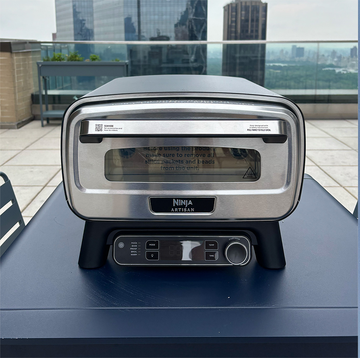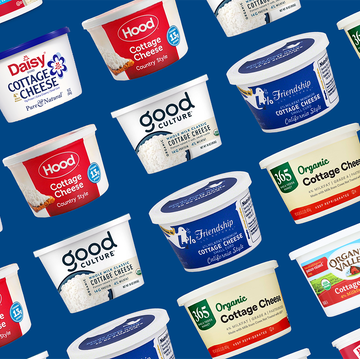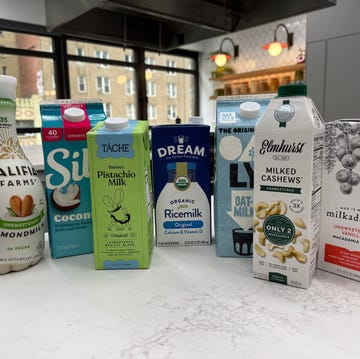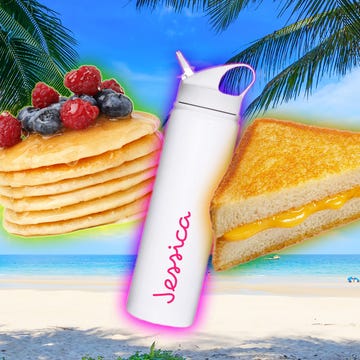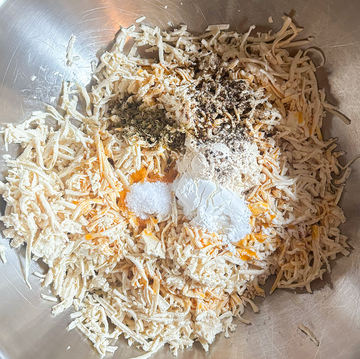The weather is heating up, and that means we are too. Whether you're pounding the pavement in a run club, making up for lost time with an Aperol spritz or five, or simply exploring new areas on vacation, the heat and the dehydration can certainly get to you. That's when many people turn to electrolytes—you know, those electrically charged substances that help your body stay hydrated. Basically, they're pretty important if you want your body to function at its best (or at all), but more on that later.
However, next time you're feeling like you're sweating out a little too much of the good stuff and want to supplement your body with one of the many electrolyte drinks or powders on the market, it's important not to overdo it. Because you can, in fact, overdose on electrolytes.
What Are Electrolytes & Why Do We Need Them?
Electrolytes are minerals that play a crucial role in hydration, muscle function, and nerve signaling, explains Robin Barrie Kaiden, M.S., R.D., C.D.N., C.S.S.D. These include sodium, potassium, magnesium, calcium, and chloride. "We lose electrolytes daily—through sweat, urine, and breathing," Kaiden tells Delish. The more we sweat, the more important it is to replace what was lost. "Too little electrolytes can lead to dehydration, muscle cramping, extreme fatigue, dizziness, or dangerous imbalances in severe cases," Kaiden explains. However, too many electrolytes can cause just as big a problem as too few. "Drinking too many electrolytes can lead to electrolyte imbalances, which can have serious consequences," explains Amy Brownstein, M.S., R.D.N. While overdoses rarely occur from ingesting electrolytes from food sources, excessive consumption of concentrated supplements or electrolyte drinks can lead to these imbalances.
When it comes to sodium, anything over 2,300 mg per day in non-athletes can increase blood pressure, exacerbate dehydration, and even lead to hypernatremia in extreme cases, Kaiden explains. As for potassium, exceeding 4,700 mg a day can lead to hyperkalemia, a condition that can disrupt the heart's rhythm. "Over 2,000-2,5000 mg/day of calcium could lead to kidney stones and compete with the absorption of other minerals," Kaiden tells us. And when it comes to magnesium, amounts as little as 350 mg a day from supplements can lead to GI issues, and in more extreme cases, heart issues.
Brownstein explains, "Many foods—like dairy, fruits, and vegetables—naturally provide electrolytes, such as potassium, magnesium, and calcium." She notes that it's nearly impossible to exceed electrolyte limits through food sources alone. "Rather, any excess intake comes from supplements," so it's important to be careful when consuming them.
What Should You Look For In Your Electrolyte Supplements?
To avoid overloading on electrolytes, Kaiden explains, it's important not to exceed specific limits for each mineral. Keep your total daily intake of various minerals, like calcium, magnesium, iron, and zinc, in mind before grabbing an electrolyte drink or supplement.
When it comes to those supplements, Kaiden suggests paying close attention to the ingredient quality in whatever you select. "Watch for artificial colors, flavors, or sweeteners—these can cause GI distress or trigger sensitivities," she explains.
Look for the appropriate amount of both sodium and carbohydrates in any electrolyte supplement. "Roughly 14-20 grams of carbs per 8-ounce beverage can actually improve absorption of both sodium and water in the gut," Kaiden says. This is critical during longer or more high-intensity activities. You're also going to want to look for something that has between 200-500 mg per serving of sodium if you're sweating heavily. Brownstein cautions that some electrolyte packets can contain upwards of 1,000 mg of sodium. "Unless you're an intense exerciser, heavy sweater, or active in extreme heat, you likely don't need all of the sodium in an electrolyte packet," she tells us.
Just like with anything, electrolyte products vary widely across the board. "Some are designed specifically for endurance sports and heat recovery. Others are just fun, colorful drinks that may be high in sugar and/or artificial sweetener," Kaiden says.
When Should You Have An Electrolyte Supplement?
When temperature and humidity increase, your electrolyte intake needs to increase as well. Kaiden explains that sodium, in particular, is important to increase as it's the main electrolyte lost when you sweat. "Those playing sports/exercising over an hour or working outside must replace water and electrolytes," she tells us. "The amount of water and electrolytes each person needs depends on sweat rate, activity intensity, and duration." For some, simply enjoying a meal with water will suffice, but others may require supplements. "If you decide to supplement with electrolytes, stick to one packet or beverage per day, and understand how its nutrient content fits with the rest of your diet," Brownstein recommends. Kaiden further recommends working with a dietitian or performing a sweat test to best determine your electrolyte needs.
"If you have any pre-existing health conditions, especially ones that impact your heart or kidneys, talk to your healthcare provider before using an electrolyte supplement," Brownstein adds.
The Bottom Line
While it's possible to overdose on electrolytes, it is not that common. "How many electrolyte drinks or powders you need to consume for it to negatively impact health may vary depending on the individual," Brownstein says. For the most part, one electrolyte beverage per day should be sufficient for most individuals. However, she cautions that certain medications or a history of kidney issues can make you more susceptible to electrolyte overdose.




